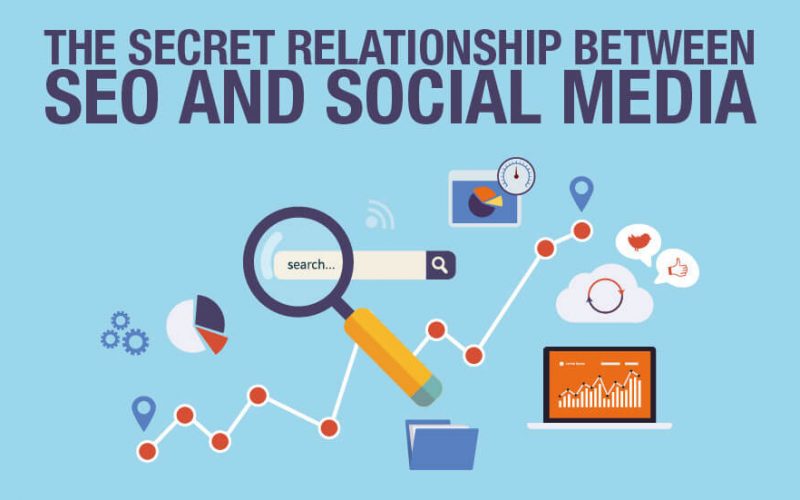
SEO and social media are two quite different, yet interrelated, aspects of digital marketing. Social media is often seen as an extension of traditional marketing — conducting photoshoots to post on a company Instagram account or filming advertising videos to be uploaded to YouTube. SEO, on the other hand, tends to be seen as more of a science. It’s about rankings and page views and website speed.
The fact of the matter is both SEO and social media have the same end goal — to attract more visitors to a website before converting them into sales. Social media might have the appearance of creating community, but in reality, it’s all about improving the bottom line.
Companies that provide SEO services in Melbourne have long talked about the relationship between SEO and social media. Understanding how these two apparently discrete strategies relate can help you create a digital marketing master plan that will attract as many visitors as possible to your site.
SEO explained
SEO stands for search engine optimisation, a method of improving both the quantity and quality of traffic to your website. By quality, we mean that the visitors who reach your site have a legitimate interest in the products and services you provide — they’re not just bots.
There are a range of strategies that can be implemented to achieve this goal. These strategies tend to be divided into three separate categories: on-page, off-page, and technical. By ensuring your website is speedy and secure, and creating quality, useful content that can be easily shared by other high-ranking sites, you’ll be going a long way to improving your search engine ranking results.
SEO is quite a technical area of digital marketing, which is why many businesses choose to outsource to professional companies that provide search engine optimisation in Melbourne.
Quick guide to social media
There are very few people who don’t interact with some form of social media, be it old-school Facebook or the professionally oriented LinkedIn.
When social media first burst onto the scene, it was largely used as a way of communicating with family and friends. Businesses quickly cottoned on to the advertising potentials of Facebook, Instagram, and co, if due only to the large amount of time that people spent on these platforms.
Social media quickly blurred the lines of what was considered advertising, largely due to the rise of influencers. Celebrity endorsements may have been nothing new, but they took on a life of their own, with many consumers not even realising the degree to which they were being influenced.
These days, social media advertising is a far more regulated field. It’s still incredibly effective, with 92 percent of Instagram users saying they’ve followed a brand, clicked on their website, or made a purchase after seeing a product or service on the platform.
Social media platforms are incredibly competitive. Success often comes down to being able to identify which platforms your target audience uses, creating unique and engaging content, and being persistent. Many companies start off with very small follower numbers only to flourish after many months of hard work.
Capitalising on both worlds
Any digital marketing strategy is going to require funding, time, and resources. Due to many reasons, including budget constraints, many companies choose to focus on either one of the other. Usually the choice is social media — people mistakenly assume because they run their personal Instagram or Facebook account, they know what is required to succeed in a business setting. This is very rarely the case, which is why it’s always recommended that you outsource any type of digital marketing, including social media, to a professional.
Working with an experienced team that provides SEO services in Melbourne means they will be able to design a comprehensive strategy that capitalises on both worlds while still sitting within your budget.
Google has historically been reluctant to say how the popularity of social media profiles affects search engine rankings. Most recently, in 2014, a Google spokesperson confirmed that the search engine does not use social media profiles as direct ranking signals. Rather, these profiles appear as an organic search result in their own right. What this means is that the popularity of your company’s Instagram account does not improve the ranking result of your website. Instead, typing your company name into Google means your website and Instagram account will come up as two distinct results. This can mean several things for your digital marketing strategy, not least of all that you should be focusing on optimising content across all your digital platforms.
Any content you post on your website or social media platforms should be based on thorough keyword research. Doing so means you’ll not only be rewarded by Google, but your visitors are far more likely to actually find your content to be useful and relevant.
Both Google and social media platforms place a high emphasis on bounce and click-through-rate. It’s not enough to simply have users visit your site or profile. They need to stick around and interact with your content. In the case of your website, prioritising functionality and security can help achieve this. For social media profiles, this largely comes down to the visual appeal of your content and your overall professionalism — spelling mistakes, low-quality photos and glitchy videos will be frowned upon!
Of course, these are only a very few examples of how you can use both social media and SEO strategies to ensure digital success. In 2022, teams that offer search engine optimisation in Melbourne will tell you that you can’t afford to invest in one without paying at least a little attention to the other. Finding the right balance and capitalising on the strengths of each strategy will guarantee online success.





